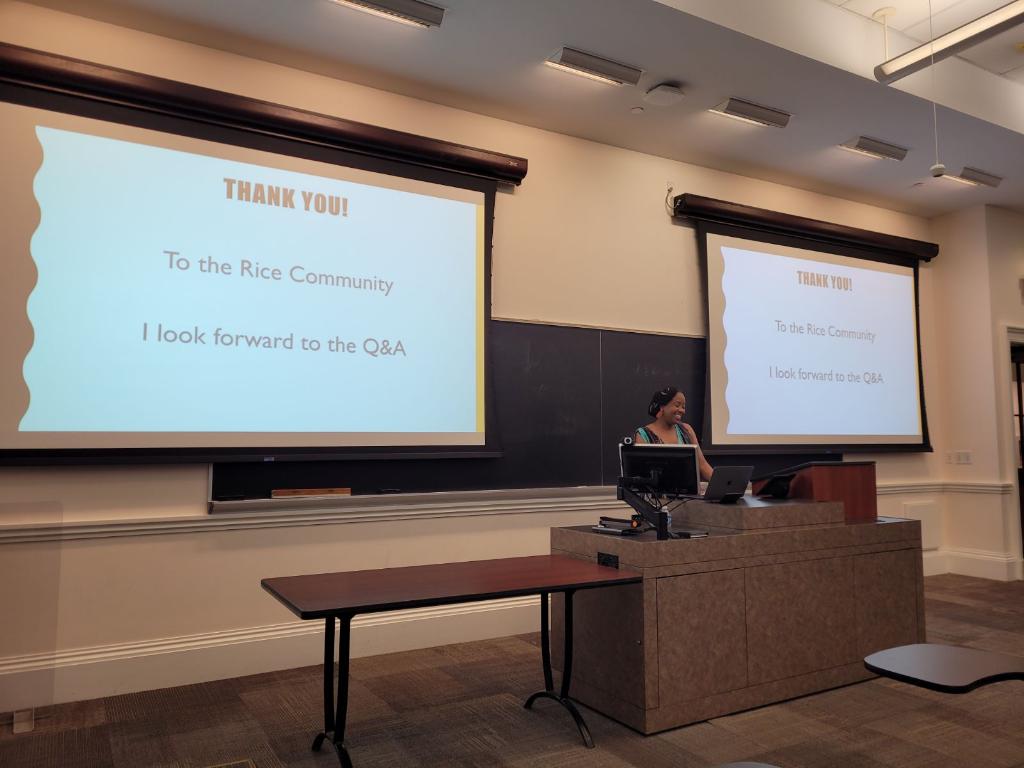
In belated honor of Martin Luther King Jr. Day, the Center for African and African American Studies at Rice University hosted a special event featuring Treva Lindsey, a distinguished professor of women’s, gender and sexuality studies at Ohio State University. Originally scheduled for Jan. 16, the event was rescheduled due to an ice storm and took place April 3. Lindsey, also known for her role as the co-founder of Black Feminist Night School at Zora’s House, delivered a lecture titled “Until Justice Rolls Down Like Water: The Enduring Power of Black Freedom Dreams.”
Lindsey’s lecture delved into the depths of King’s legacy, offering a Black feminist perspective that contextualized and illuminated the profound impact of his dreams. Beyond the oft-cited “dream” that King is remembered for, Lindsey emphasized the concept of “dream work,” highlighting the ongoing effort within Black communities to actualize their visions of a liberated future.
“As I prepared for the talk, I revisited King’s extensive body of work and once again became frustrated with the attempts of many to evacuate from his legacy the radical imagination and revolutionary calls to action evident throughout King’s body of work,” Lindsey said. “At the big P political level is a complete whitewashing and defending of King’s commitment to liberation. What we often get are empty platitudes, tepid condemnations of racial prejudice and inequities and promises of colorblind futures in which the inglorious history of this nation and its murderous and suffocating afterlives are footnotes to an existence void of resistance and of abolitionists’ imagination.”
Instead, Lindsey urged for a reexamination of King’s last major mobilization, the Poor People’s Campaign, which sought to confront the systemic injustices perpetuated by capitalism.
“Anti-poor sentiment and ideologies anchor policies, bills and laws aimed at demonizing and criminalizing those who cannot afford the basic necessities such as housing and food,” Lindsey said. “Instead of calling out the ruthless cycle of extraction, exploitation and prioritization of profits over people, we pathologize the impoverished and ignore systemic failures.”
Moreover, Lindsey emphasized that the work of building a more just and equitable society is not merely a matter of diversity, equity and inclusion initiatives. It requires a steadfast commitment to dismantling systems of dispossession, marginalization and subjugation.
“We need more of the same: more people concerned with the margins of the margins, new ways of knowing and listening and more warmth while being critically generative in our scholarship, our organizing and our dreaming,” Lindsey said.
Learn more about CAAAS and its upcoming events here.

